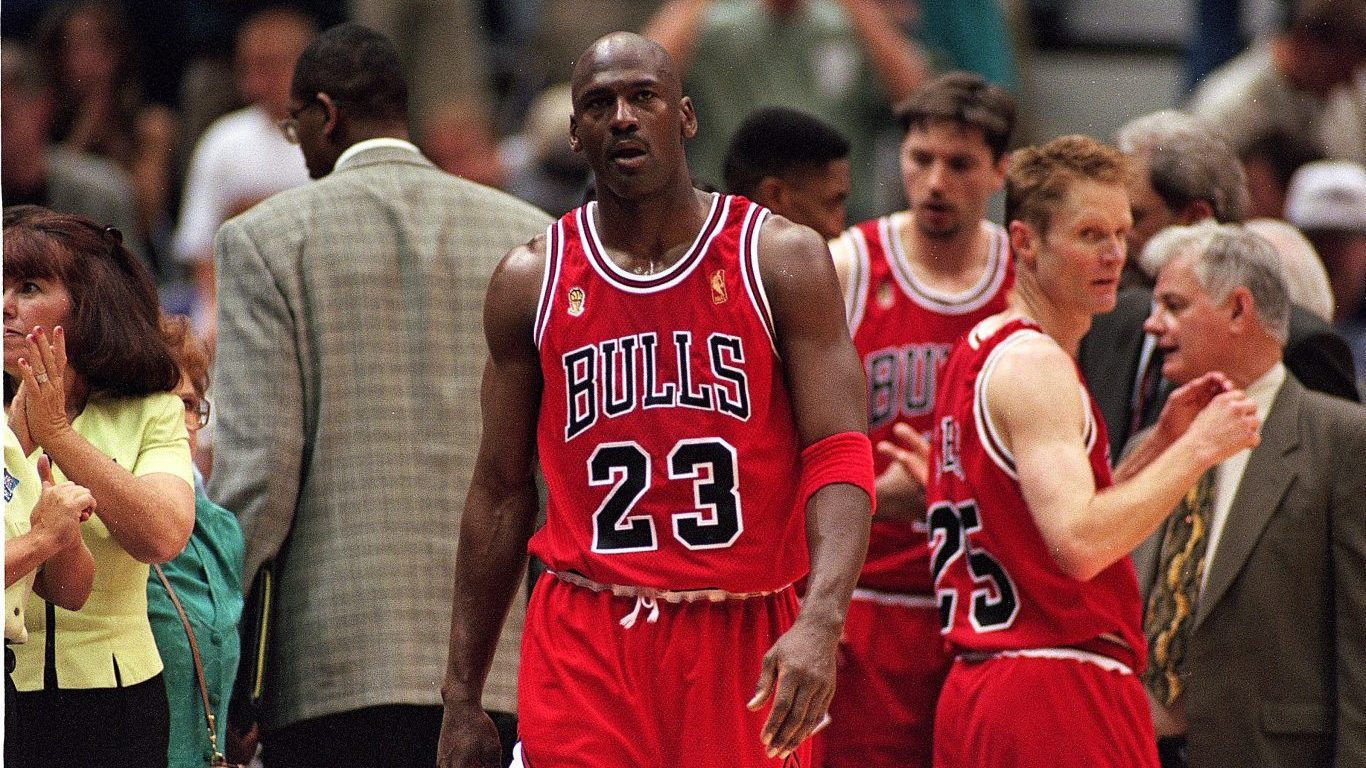
24/7 Insights
-
- The Olympics are the most expensive sporting event in history.
- Some Olympic games cost billions just for transportation and venues.
- It would have cost Japan a fortune to cancel the 2020 Olympics completely.
- Also: Discover “The Next NVIDIA”
Considering the scope of the Olympic Games, whether Winter or Summer, you know they will be massive. Between the number of nations, athletes, and sponsors included, almost no event on Earth requires as much planning and preparation as the Olympic games. Even though the games are only held every four years, there is no question that they take exactly that long to plan, which only adds to the total cost.
Between building new arenas, places to house the athletes, and every other logistical detail required, the total cost can easily balloon, so the games have averaged a cost overrun of 176% starting with the 1960 Olympic games. While the Olympics might be built on dreams, it costs money to make them happen. We can pinpoint the most expensive Olympic games ever in descending order using data from Front Office Sports and USA Today.
Why Is This Important?
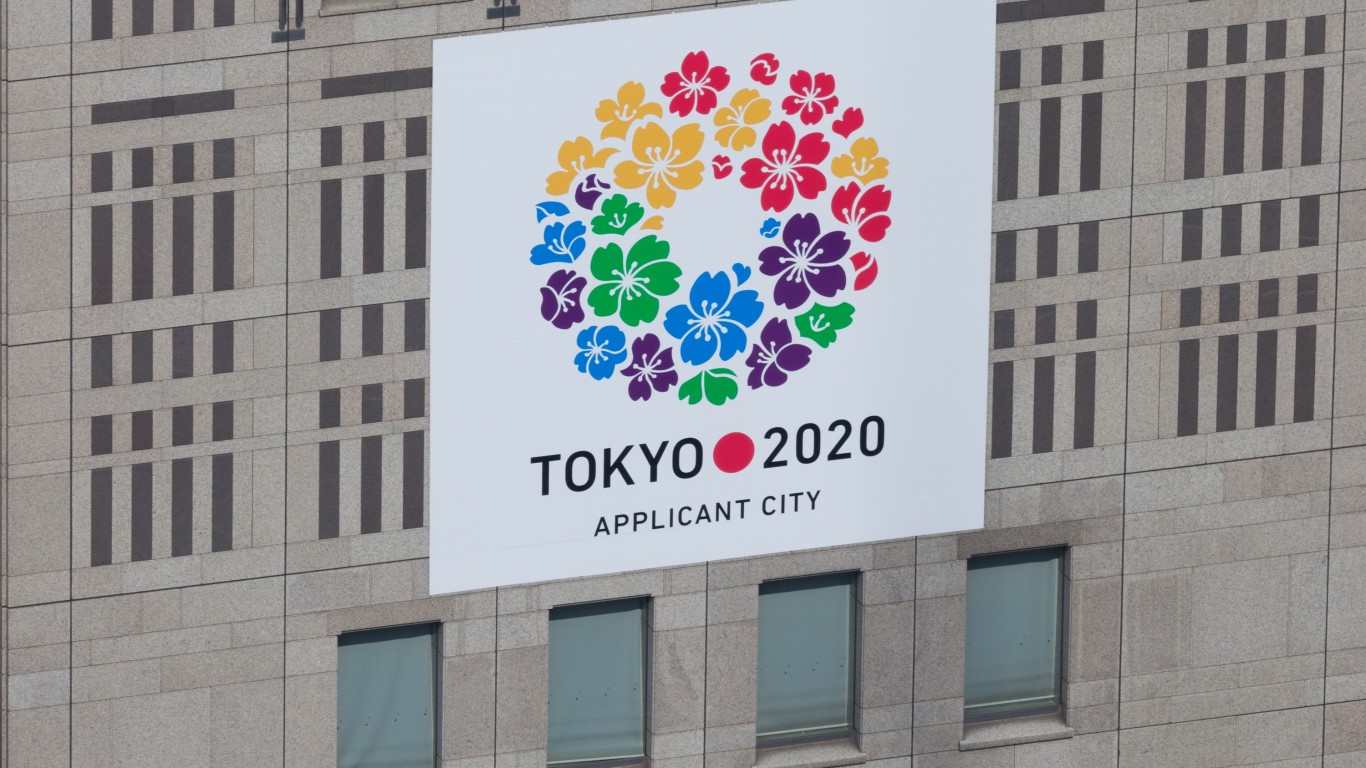
There is no question that the Olympics are a huge draw, with hundreds of millions of viewers every four years. This means it’s also a huge draw for sponsorships with brands like Toyota, Coca-Cola, and dozens of other brands that all have an opportunity to get in front of a global audience. These brands and global sporting events are regularly covered on 24/7 on Wall St., so the Olympics perfectly fit our coverage.
11. 2000 Sydney Summer Games

- Total cost: $5 billion
Best known as the Games of the New Millennium, the 2000 Sydney Summer Olympics featured 10,647 athletes in 300 events and 28 sports. As part of the $5 billion Sydney and Australia spent as the host city, it did not receive much back. It’s been said that only around $2.1 billion was earned for hosting the games. The result is that the 2000 games were net negative in profit. What’s worse is that Sydney spent a fortune on venues for the games only to see these venues financially fail soon after the Olympics left town.
10. 1976 Montreal Summer Games
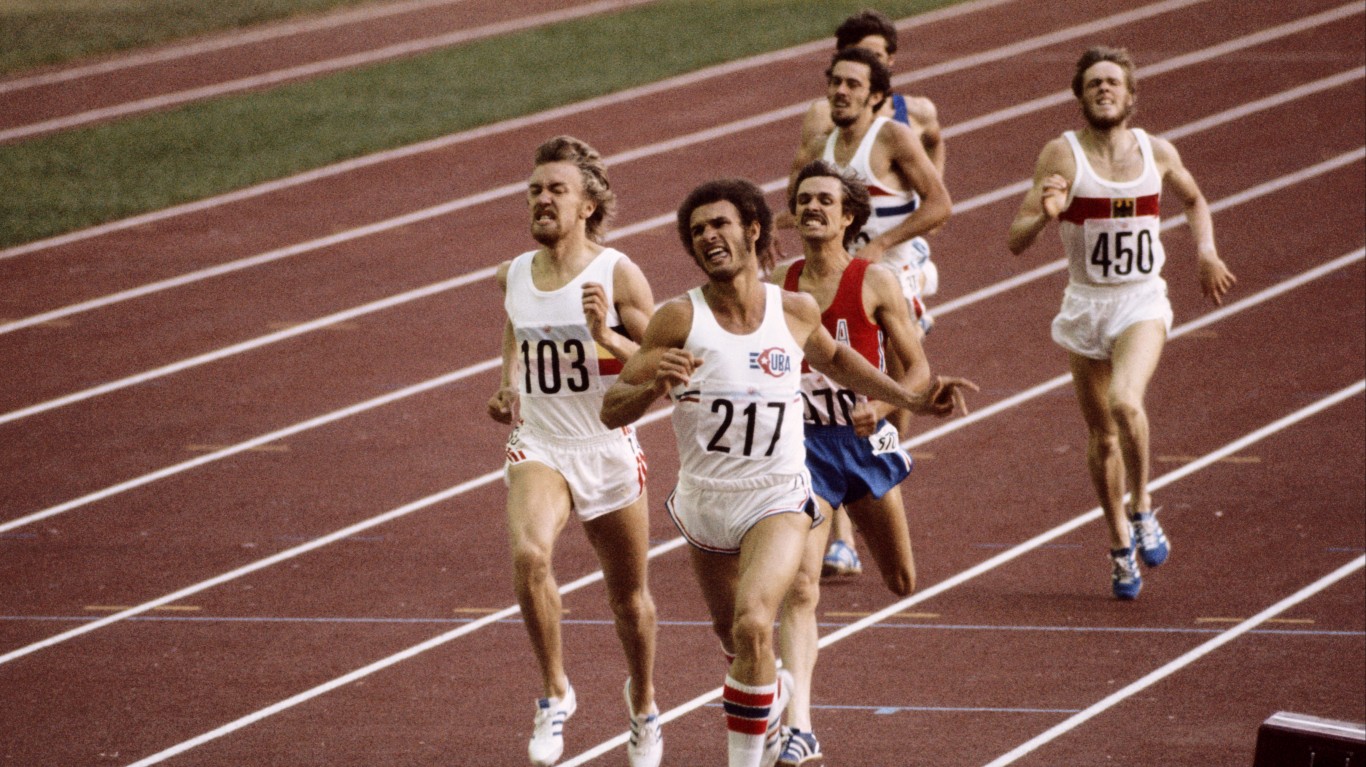
- Total cost: $6.1 billion
Taking place between July and August 1976, 6,073 athletes from 92 nations came together to participate in 198 events across 21 different sports. Costing the city of Montreal around $6.1 billion, the cost overrun was a whopping 720%, the highest percentage for any host city in recent history. There is no question that sports-related costs were the major source of the overrun that forced the city of Montreal to spend far more than it had initially anticipated as the 1976 host.
9. 1980 Moscow Olympics

- Total cost: $6.3 billion
One of the most unique Olympics in history, dozens of nations boycotted the 1980 Moscow Winter Olympics. While 80 nations were represented by 5,256 athletes who participated in 203 events and 21 sports, 66 countries, including the United States, boycotted the games. The original budget for the games was around $1.35 billion, but the total cost was ultimately determined to be much closer to $6.1 billion. However, the cost overrun is unknown as the Russian government has never publicized any figures.
8. 2008 Beijing Summer Games

- Total cost: $6.8 billion
The 2008 Beijing Summer Games were the second most expensive, with 302 events across 28 sports and 10,899 athletes from 204 countries. While the Beijing Organizing Committee for the Olympic Games indicated the total cost was closer to the 2004 Athens Olympics, other cost estimates believe the number is closer to $6.8 billion in today’s dollars. It was believed the 2008 games were one of the most expensive of all time, though inflation costs only place it 8th in today’s dollars.
7. 1992 Barcelona Summer Games
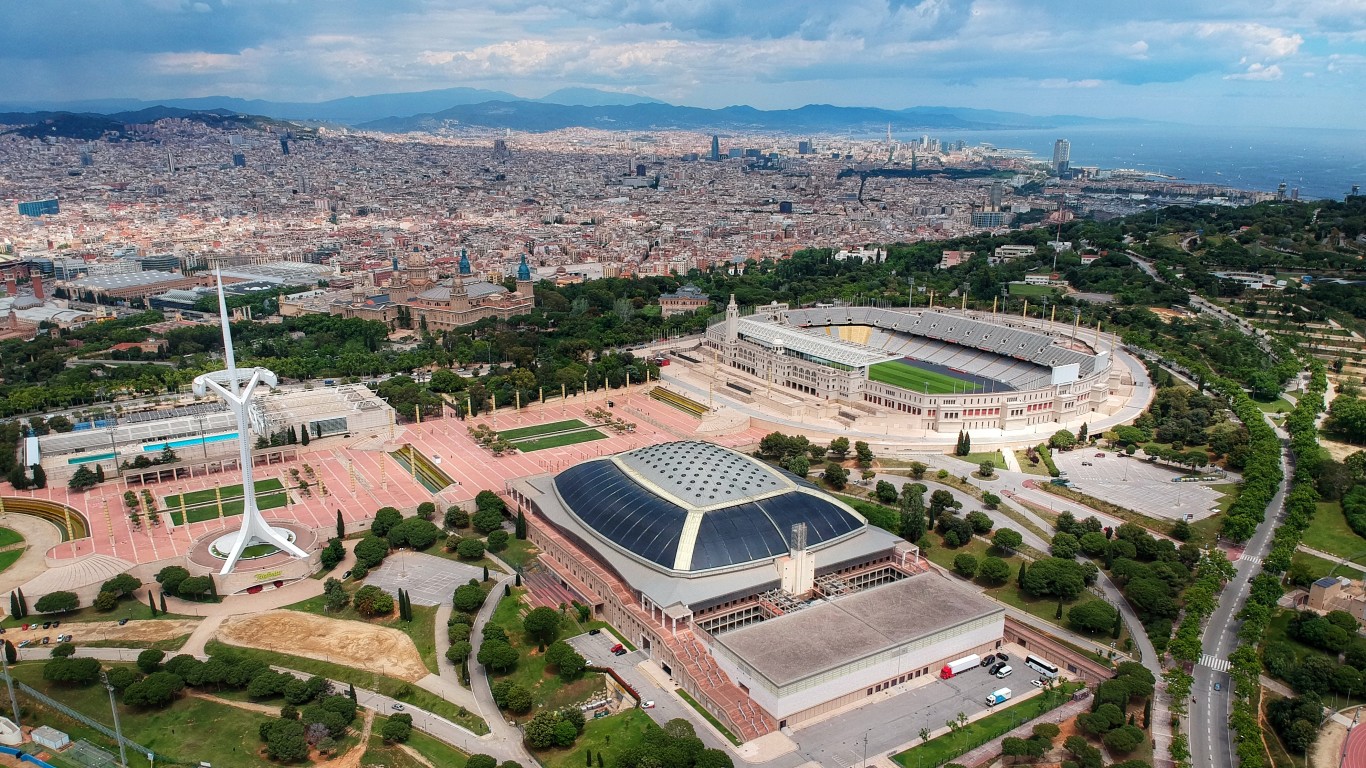
- Total cost: $9.4 billion
One of the most memorable Olympic Games, the 1992 Barcelona Summer Games, hosted 169 nations and 9,386 athletes. These athletes competed in 257 events across 25 separate sports, including 34 disciplines. As the second largest city in Spain, Barcelona was a perfect host for the games, and the weather was beautiful. Unfortunately, the estimated cost of around $9.4 billion included a cost overrun of 226%, but this number is enough to make it the 7th most expensive Olympics.
6. 2024 Paris Summer Olympics

- Total cost: $9.7 billion
With 10,714 athletes from 206 countries, the 2024 Paris Olympics will be one of the biggest in history. This includes a whopping 329 events in 32 sports, including the debut of breakdancing as an Olympic sport. While it’s still early to calculate a final cost while the games are ongoing, it’s believed the games will cost around $9.7 billion after everything is said and done. This includes over $500 million in transportation and an estimated 13 million meals served at the games, or 40,000 daily. No wonder a considerable cost is associated with hosting the Olympics, as food costs a ton of money.
5. 2004 Athens Summer Games
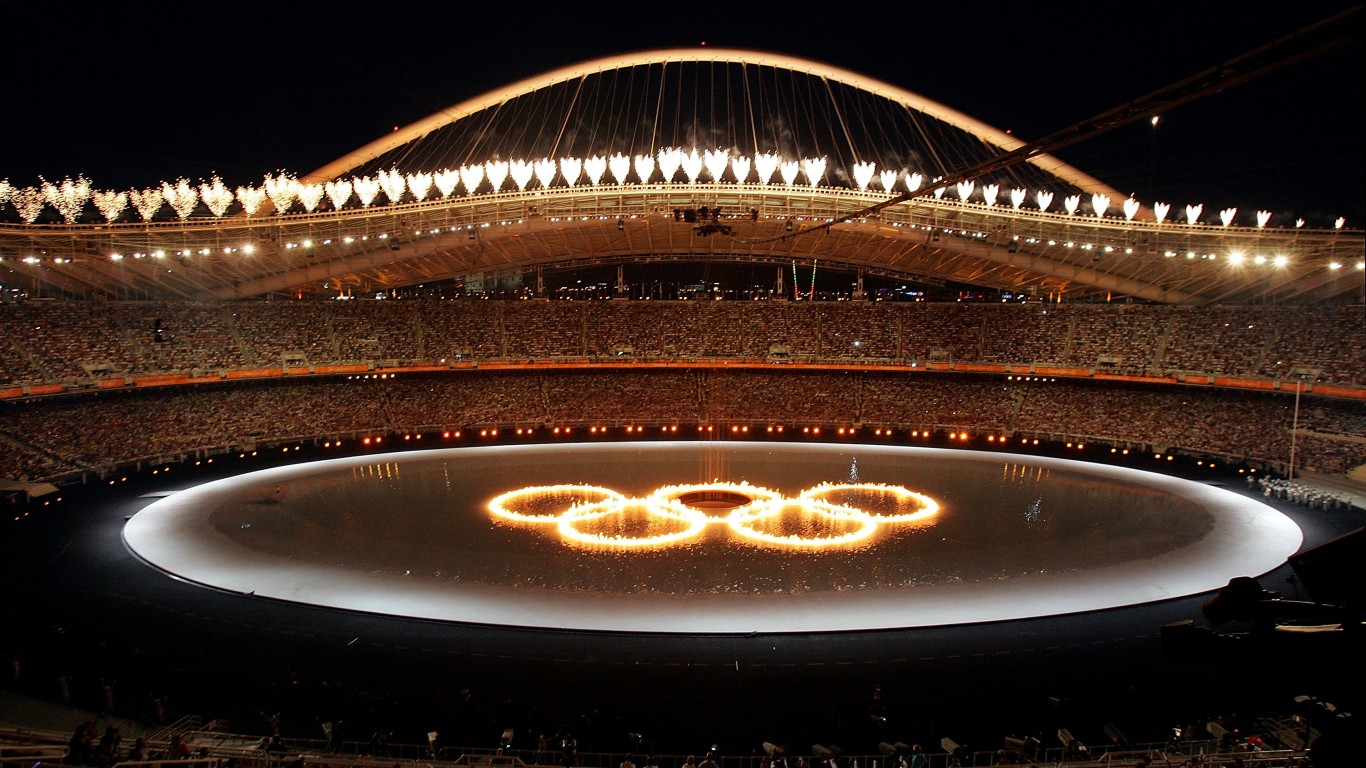
- Total cost: $9 billion
Billed as the “dream games” by then IOC President Jacques Rogge, the 2004 Athens Summer Games hosted 10,557 athletes in 301 events. The games are believed to have cost around $9 billion, and the Athens event cost around $300,000 per athlete. Unsurprisingly, costs for the games went well over budget to the tune of a 49% overrun. However, this number is lower than the 76% overrun the London Games had to handle in 2012. Despite these extraordinary costs, the Greek Minister of Finance indicated a “net economic benefit” from the games.
4. 2016 Rio de Janeiro Summer Games

- Total cost: $13.7 billion
In August 2016, the Rio de Janeiro Summer Games included 11,180 athletes participating in 306 separate events across 28 sports. This was undoubtedly one of the largest events in the history of the Olympics, with 207 nations participating. It should go without saying that this level of participation helped immediately boost costs as the 2016 games overran its budget to the tune of 51%. Ultimately, the games cost $13.7 billion, including sports, operational, transportation, workforce, administrative, and technology costs.
3. 2012 London Summer Games

- Total cost: $15 billion
A whopping 10,518 athletes participated in the 2012 Summer Olympics, held in London between July 27 and August 12. These athletes showed the world their skills in 302 separate events across 26 different sports. The original belief was that using a mixture of old and new venues would help the city of London keep costs down, but it was not meant to be. A study from Oxford University places the total cost around $15 billion. However, this number floats higher and lower depending on whether you stick with Oxford or look at third-party sources.
2. 2020 (2021) Tokyo Summer Games
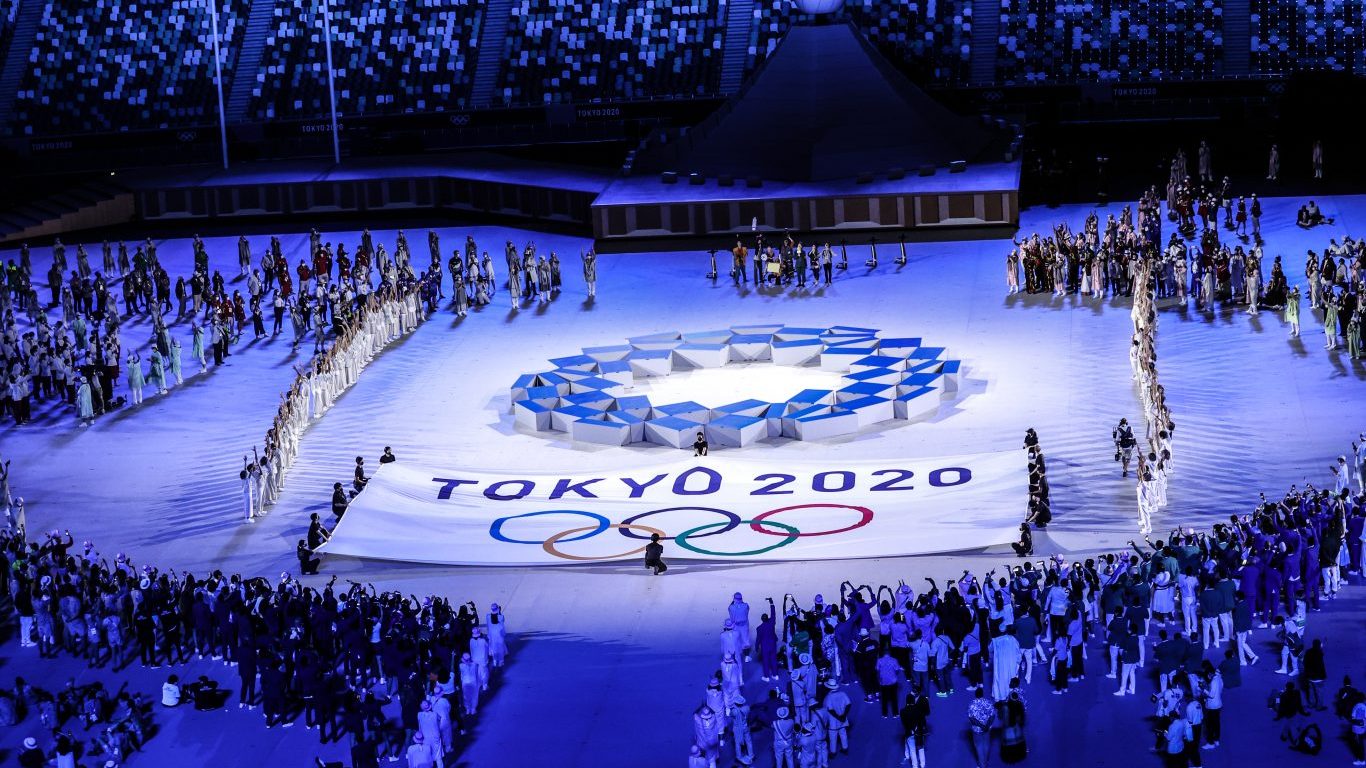
- Total cost: $20 billion
While the 2020 Tokyo Summer Games were postponed due to the COVID-19 pandemic, they were still undoubtedly the third most expensive ever. Originally scheduled for July and August 2020, the games were held from July 23 to August 8, 2021. Around 11,319 athletes from 206 countries participated in the games across 339 events and 33 different sports. When a proposal to cancel the games was first floated, it was estimated that it would have cost Japan around $41.5 billion between operating expenses and the loss of tourism revenue. Ultimately, the games continued, and by doing so, total costs ballooned to $20 billion.
1. 2014 Sochi Winter Olympics

- Total cost: $51 billion
One of the largest Winter Olympics in history, the 2014 Winter Olympics in Sochi included 88 nations. Across the February event, 2,873 athletes participated in 98 events across seven sports, a record. This Olympics included twelve new competitions, including women’s ski jumping, biathlon mixed relay, and mixed-team luge. The total cost was around $51 billion against an estimated budget of $12 billion, which is a shockingly high number even compared to other dollar totals on this list.
Get Ready To Retire (Sponsored)
Start by taking a quick retirement quiz from SmartAsset that will match you with up to 3 financial advisors that serve your area and beyond in 5 minutes, or less.
Each advisor has been vetted by SmartAsset and is held to a fiduciary standard to act in your best interests.
Here’s how it works:
1. Answer SmartAsset advisor match quiz
2. Review your pre-screened matches at your leisure. Check out the advisors’ profiles.
3. Speak with advisors at no cost to you. Have an introductory call on the phone or introduction in person and choose whom to work with in the future
Thank you for reading! Have some feedback for us?
Contact the 24/7 Wall St. editorial team.

